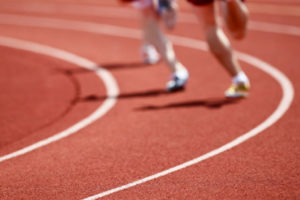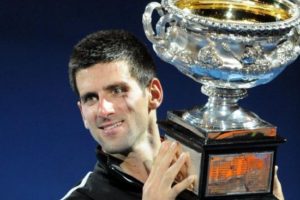Arsene Wenger and Jose Mourinho two adversaries, bitter rivals, but do they have a lot in common today? Both have been considered visionaries and leading lights in football. They have revolutionised how the game is played and the ideas of management; Wenger with his behind the scenes attention to sports science and physical performance, Mourinho with his tactics, discipline and ability to push his players. But now both could be consider behind the times, other teams have copied or improved on what these two coaches have done.
They have been worked out, exposed some might side. The players, fans and media all sense this, some still believe, some don’t. Pep Guardiola is generally regarded as to have superseded them, granted he has been fortunate with an embarrassment of riches, in terms of players and financial support, but there can be little doubt that he has always brought his teams to the top and kept them there. So why can Wenger and Mourinho not keep up? One argument could be that they have spent too much time working; they are blinded by the intensity of their job. They may lack the idle times to truly reflect on modern football, they cannot see their own blind spots. This idle time needn’t necessarily be a “find yourself” backpacking holiday; although the thought of a back packing Mourinho coupled with a TV series is quite appealing. Top coaches’ roles are to find new insights that raise their teams above others, to do something that other teams can’t do. This clearly involves finding new approaches that no one is currently using. Any job practicalities and workloads are likely to detract from this thinking time. Charles Darwin was reported to take three 45 minute walks every day. Just this absence of stimulus, almost passive thinking time can be useful. One can’t help thinking if Wenger took a longer period away from the game; say 5-6 years ago, would he have come back better. I cannot say I know a great deal on the football coaches daily habits but I’d be surprised if they didn’t engross themselves in work almost all day every day. The classic, clichéd answer to a defeat is “well, we just need to keep working hard, keep focusing on trying to be better”. But few externally say, “Perhaps we can’t see the bigger picture here”, “Maybe we are just in a bubble where we are making poor decisions”. Mantras can become faulty religions. It is not necessarily just work and effort that leads to better results. Many coaches and athletes may well have had more of thinking time earlier in their careers, they could truly analyse sports and develop strategies that they applied to their later roles. The culture of elite performance is commitment, relentlessness, almost robotic work- but robots can’t innervate. Clearly it is possible, perhaps advisable for coaches to take some time out, but what about the athletes, are they different?
Rodger Federer- refreshed and revitalised, conquering the tennis world once again, at 36 years old no less. Federer took what many may have considered a risky decision when, predominantly due to injury he took a considerable break from all tennis. But when he returned he accepted he wouldn’t play all tournaments, he would structure and focus his time more effectively. Clearly athletes have a physical consideration that coaches lack and whilst effort and relentless training have upsides, in terms of physicality and skill development, more has long been understood to not always mean better. Did Federer’s lack of training during that period allow him to find to weaknesses in his opponents? New ideas of how to train? New motivation and determination? Or simply a better functioning body less downtrodden of fatigue? It may be a combination of all these factors, but few can argue his is poorer for that long absence. It is not uncommon to find athletes whose training is driven by fear of not being as good as others, fear of being left behind if they don’t train harder. This may well be a critical factor in why they are so successful, that motivation will never relent. But Federer shows the consequences of persisting with that mentality may well be less than it is held up to be.
Commercial demands, for example in cricket, have led to very short, or even no breaks for years for many cricketers. But this has shown a very real decline in many players’ abilities, particularly within overseas test cricket when there is a lack of adaptation time. Management teams have needed to rotate players, leave them out of tours and many simply retire from one aspect of the game in order to keep it manageable. The professional era has finally, it seems, started to accept that athletes and coaches aren’t machines that just keep producing. Only through treating them and expecting them to be people can the best be achieved from them. But do the coaches consider themselves in this approach? Perhaps it is too late now for Wenger, maybe he needed a year off 10 years ago. Mourinho may well benefit from doing that TV series.




